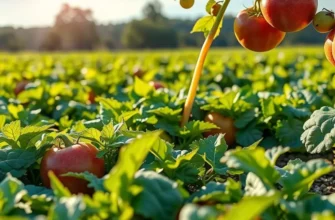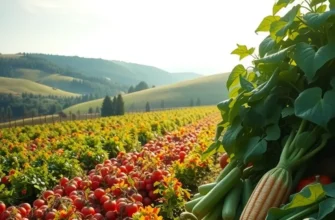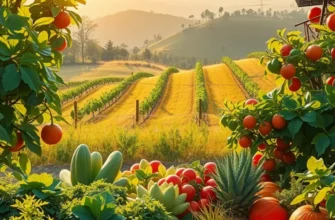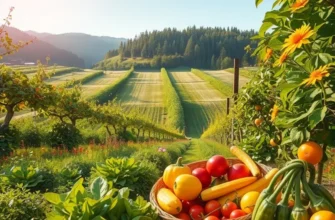Holidays are a time of joy-filled gatherings and feasting, but they can also lead to significant food waste if not properly managed. Understanding how to store food safely and devise a plan to minimize waste can enhance your holiday experience. From preserving leftovers to ensuring proper ingredient management, these strategies empower you to embrace the spirit of the season while being mindful of resources.
Efficient Food Storage Solutions
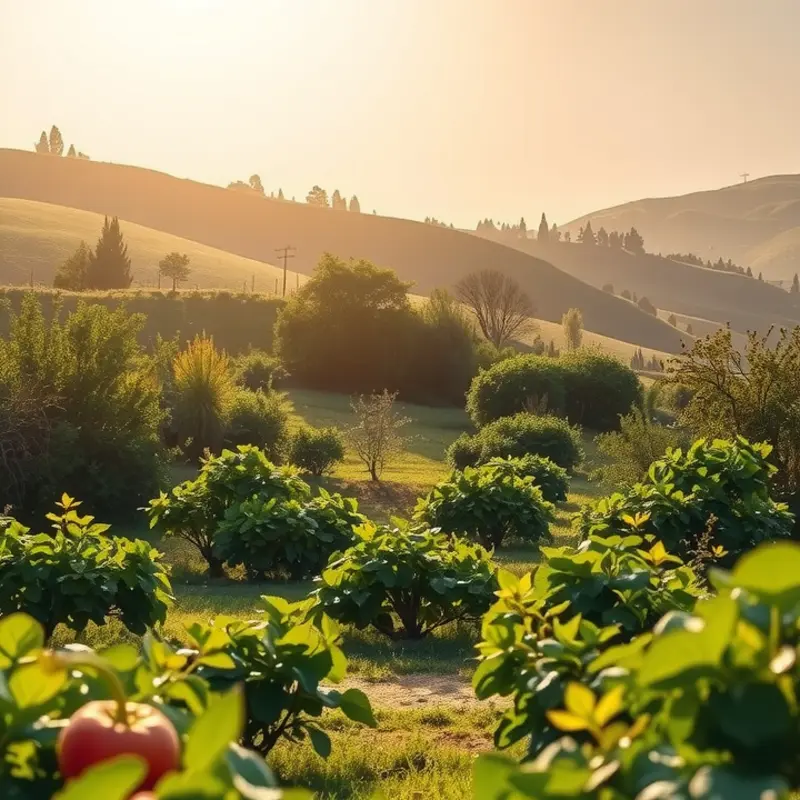
The holiday season often results in an abundance of delicious dishes and leftover food. Proper storage is key to minimizing waste and ensuring that you can enjoy your leftovers safely. Let’s delve into some effective methods for storing holiday ingredients and leftovers.
First, understand your refrigerator’s layout and organize accordingly. Store meats and seafood on the bottom shelf where it is coolest. Locate dairy on the upper shelf to maintain a consistent temperature. Utilize the crisper drawers for fruits and vegetables, adjusting humidity settings if your fridge offers that feature. An organized refrigerator not only preserves freshness but also prevents cross-contamination.
Cold storage works best for perishable items, but the freezer is your best friend when it comes to prolonging the life of leftovers. Ensure food is cooled to room temperature before freezing. This prevents ice crystal formation, which can deteriorate texture. Use airtight containers or vacuum-sealed bags to prevent freezer burn. Write the date of freezing on each package. Use older items first to reduce waste.
Invest in clear containers that allow visibility. This way, you know what’s inside without opening them. Containers with modular shapes maximize space and ensure stable stacking in both the fridge and freezer.
For items like pies, pastries, or roasted meats, wrapping tightly in foil followed by a layer of plastic wrap offers adequate protection against moisture loss. Cakes and similar items, on the other hand, can be sliced into servings and stored in airtight containers.
When it comes to sauces and soups, opt for portioning. Pour them into small, airtight containers rather than freezing large amounts. This technique not only frees up space but also gives you the convenience of thawing just what you need.
Keeping a running inventory can save both time and money. Lists or digital reminders about what’s available make it easy to plan meals around potential food waste. Moreover, designating a pantry section for canned or jarred ingredients in your recipes promotes easier meal planning.
Finally, keep holiday ingredients fresh by using simple preservation techniques. Herbs can be kept in water-filled jars in the fridge like a bouquet. Alternatively, chop and freeze them in olive oil using ice cube trays. This method also applies to flavored butter or stocks. This ensures that flavors are retained, and preservation is enhanced.
For inspiration on using leftovers creatively, consider exploring recipes like creamy garlic butter chicken. This can breathe new life into ingredients that might otherwise go to waste.
These efficient storage solutions help reduce food waste during the festivities. With thoughtful planning and proper techniques, your holiday meals can be savored well beyond the celebrations.
Smart Planning to Reduce Waste
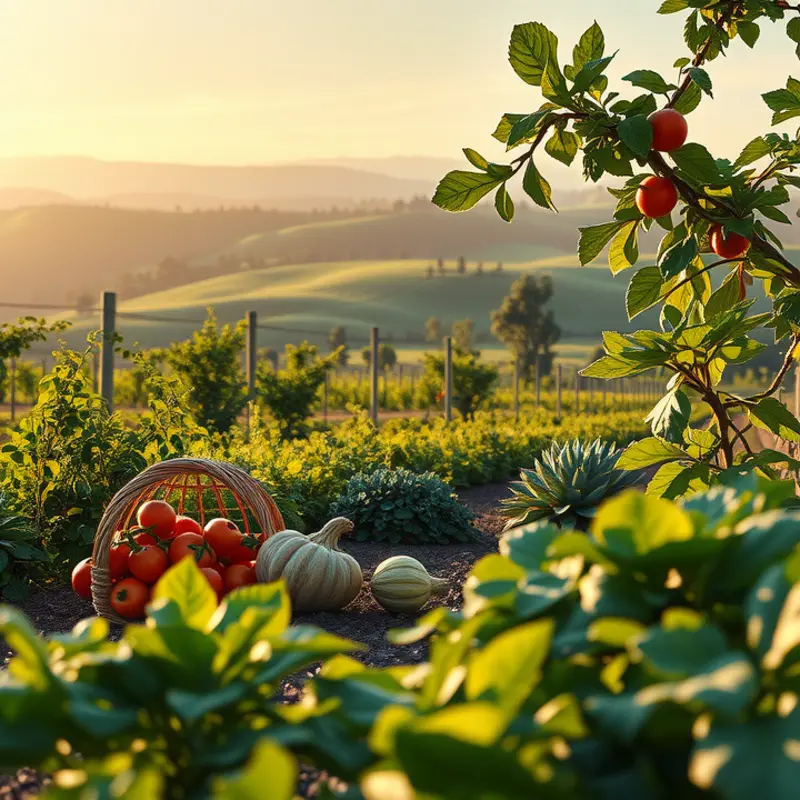
The festive season often involves exquisite meals, but this can lead to substantial food waste. By planning meals smarter, one can create delicious moments without the guilt of excess. First, when planning your holiday menu, think of dishes that share common ingredients. This reduces the need to buy unique items for every recipe, limiting waste.
Begin with a detailed inventory of your pantry, fridge, and freezer. Note items that need to be used soon and aim to incorporate them into your menu. This approach prevents duplicates and ensures that perishable goods are prioritized.
Embracing versatility in your recipes can also reduce unnecessary waste. For example, leftover roasted vegetables can be repurposed into a hearty soup or a vibrant salad. Here is a creative idea: try using extra chickpeas from a Mediterranean salad to craft crispy snacks or enrich a stew. For more ideas, check out how to make a Mediterranean Chickpea Salad.
Batch cooking is another valuable strategy. By preparing larger quantities, you can take advantage of bulk ingredients, often saving money and reducing packaging waste. Divide these meals into portions and store them properly to facilitate convenient reheating.
When planning your shopping, make concise and strategic lists. Consider potential leftovers and how they can fit into future meals. Visualize how each ingredient can be utilized across different dishes. This helps avoid impulse buys that often end up as waste.
Watch portion sizes carefully. While holidays might seem synonymous with indulgence, ample servings can lead to excess food ending in the trash. Pay attention to the number of guests and their dietary preferences. Err on the side of moderation, allowing guests the option to savor every course without overwhelming their plates.
Creative substitution can also significantly reduce waste. Out of a specific herb or spice? Experiment with what you have on hand, opening up a world of unique flavors while cutting down the likelihood of forgotten seasonings languishing at the back of your cupboard.
Finally, encourage open discussions about food preferences and dietary needs. With clear communication, you can prepare meals everyone will enjoy, eliminating the possibility of dishes left untouched. Smart planning means being thoughtful about choices and prepared for adjustments.
With these strategies, you’ll not only make the most of your ingredients but also foster a sustainable and satisfying holiday dining experience. This mindful approach leads to less waste, making celebrations all the more rewarding.
Final words
Minimizing food waste during the holidays involves deliberate planning, effective storage, and creative ingredient use. By implementing simple strategies for safely storing food and managing your meals, you can enjoy the holiday season while being thoughtful about food waste. Take small steps like making a meal plan and utilizing leftovers to make the most of your ingredients. Embracing this mindful approach not only enhances your holiday gatherings but also contributes to a more sustainable future. Celebrate the holidays with joy and purpose, knowing you’re making a positive impact.


